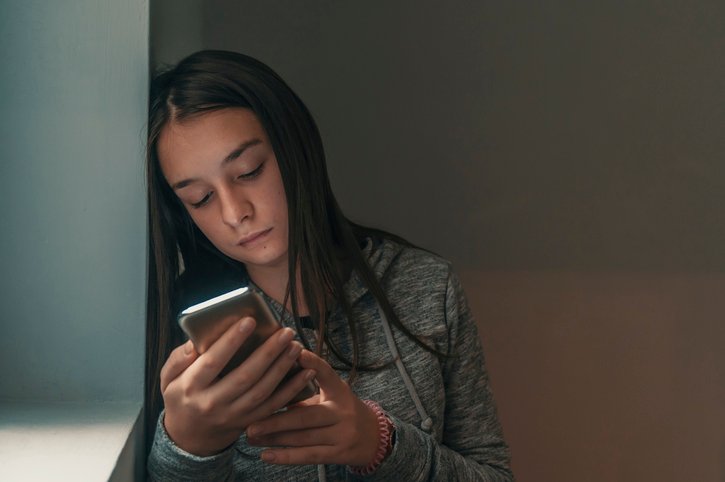(Part 2 of our Co-Parenting Without Escape Routes Series)
Introduction: When Conflict Meets a Screen
The moment tension hits, some kids don’t run to the other parent — they run to a device. A phone, a game console, YouTube, or TikTok can offer instant distraction from an unfinished homework assignment, a tense conversation, or a consequence they don’t like.
In today’s co-parenting reality, screens are often the third home — a place kids retreat to when both parents are busy, tired, or worn down from conflict.
While it’s normal for kids to want comfort in moments of stress, screens can easily become an escape hatch that prevents them from building the accountability and problem-solving skills they’ll need later in life.
Why This Matters Now
Screens have always been a distraction, but a few modern realities make the risk sharper:
-
More device access — even younger kids have their own phones or tablets.
-
Post-divorce fatigue — co-parents are often managing two households, jobs, and new routines.
-
Economic strain — more parents working long hours, leading to less direct supervision.
-
Online connection to other adults — extended family, friends, or even new partners may be “on call” digitally, providing a sympathetic ear without context.
How Digital Avoidance Shows Up in Co-Parenting
Signs your child may be using screens as a conflict escape:

Are screens becoming your child’s escape hatch?
-
Immediately turning to gaming or social media after being asked to address an issue.
-
Claiming to be “busy” online when it’s time to follow through on responsibilities.
-
Using group chats or private messages to seek emotional backup from other adults or relatives during a dispute.
-
Staying in their room with headphones in during family conversations about rules or accountability.
The Undermining Factor
One of the biggest challenges in managing screen-based avoidance is when the other co-parent or extended family enables it.
From the Other Co-Parent
-
Restoring full device privileges even when both agreed to consequences.
-
Messaging the child during discipline to reassure them they don’t need to “put up with this.”
-
Allowing unrestricted gaming or online access at their house when rules are in place at yours.
From Extended Family
-
Grandparents buying devices or accessories to “make them feel better.”
-
Family members validating the child’s side of the story without hearing yours.
-
Offering to “come pick them up” when they’re upset — often leading to unresolved issues.
Why Undermining is So Damaging
When one parent or family member removes the discomfort of accountability, it teaches the child two dangerous lessons:
-
Rules are negotiable depending on where you are.
-
Emotional discomfort should always be avoided — even when it’s part of learning and growth.
In adolescence, this can evolve into seeking out relationships, environments, or communities that allow them to avoid responsibility altogether.
Positive Management Strategies
You can’t control every variable, but you can create a system that reduces the payoff of avoidance.
1. Align Screen Time Rules Where Possible
If you and your co-parent agree on nothing else, try to agree that devices aren’t a refuge from consequences.
Example: “If they lose their phone for a day at my house, it’s the same at yours.”
2. Use Screen Time Tools
Apps like Screen Time, Family Link, or built-in parental controls can limit usage across devices — especially if both homes participate.
3. Define “Cool Down” Alternatives
Replace screen retreat with healthier decompression options: walks, art, cooking, music, or sports.
4. Address Undermining Directly (But Calmly)
If another parent or relative is undoing your discipline:
-
Share specific examples, not general accusations.
-
Frame it as a concern for the child’s growth, not a personal attack.
-
Offer a simple alternative they can do to support the child without undercutting you.
5. Involve a Mediator if Needed
When undermining becomes chronic, mediation can establish a “non-interference clause” in your parenting plan, especially around technology and discipline.
For Parents Wondering: “What in the Heck Went Wrong?”
If you’re looking back and realizing screens became your child’s go-to conflict escape, you’re not alone. Many parents are just now seeing the long-term impact:
-
Teens who can’t sit through a hard conversation without reaching for a phone.
-
Young adults who ghost employers or friends instead of resolving issues.
The good news? It’s never too late to change the pattern — but it requires consistency and, ideally, cooperation from both homes.
The Role of Mediation
In our work at The Divorce With Dignity Network, we help co-parents move past device battles into clear, enforceable agreements that protect the child’s growth — not just their comfort. Screen rules, communication limits, and mutual enforcement can all be built into a mediation agreement to prevent devices from becoming the ultimate escape hatch.
Key Takeaway
Screens aren’t inherently bad — but in co-parenting, they can quickly become the modern equivalent of running away to the other parent’s house. By removing the reward for avoidance, aligning expectations, and addressing undermining head-on, you give your child something more valuable than unlimited gaming time: the ability to face life, not flee from it.
Get Support From Someone Who’s Been There
If you’re facing co-parenting challenges — whether you’re just starting to create a plan, navigating new conflicts, or wondering how things went off track — you don’t have to figure it out alone.
Our Divorce With Dignity Network Providers have faced co-parenting themselves and understand the real-life challenges that come with raising kids in two homes. They can help you create agreements that prevent undermining, close the “escape hatches,” and keep your children accountable in healthy, age-appropriate ways.


